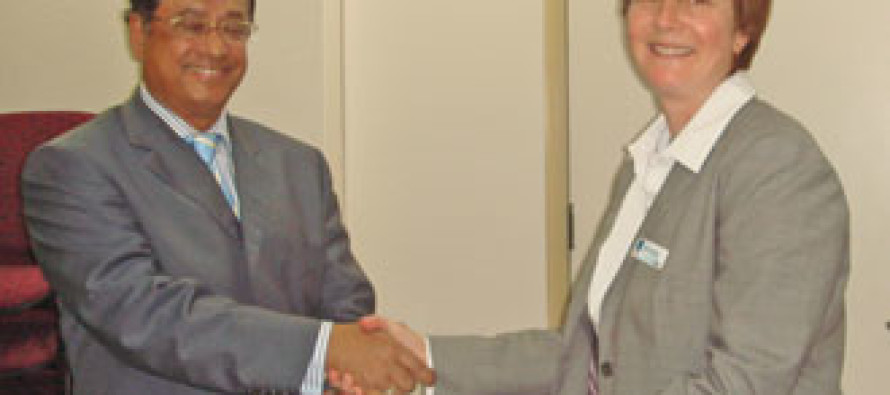Up-skilling of Bangladeshi manpower for overseas employment with assistance from TAFE, NSW

Bangladesh High Commission Canberra Press Release (27 October 2009)
Up-skilling of Bangladeshi manpower for overseas employment with assistance from TAFE, NSW
Technical and Further Education (TAFE) of New South Wales (NSW) Government expressed its keen interest in setting up training institutions in Bangladesh for up-skilling Bangladeshi manpower. This was stated to Bangladesh High Commissioner Lieutenant General Masud Uddin Chowdhury while he met with senior officials of TAFE, NSW and Northern Sydney Institute (NSI) in Sydney on 26 October 2009. In the meeting there was a very fruitful discussion on the issue of collaboration between Bangladesh and TAFE, NSW. Mr. Anthony Khouri, Honarary Consul General of Bangladesh in Sydney and Nazrul Islam, Counsellor of Bangladesh High Commission were also present in the meeting.
There is currently very limited scope for unskilled workers getting employment in Australia as well as other overseas destinations as most of the countries now seek to employ skilled and semi-skilled manpower. Bangladesh is a country with immense potentiality of up-skilling manpower for the overseas markets including Australia. This initiative of setting up Technical and Vocational Training Institutions in Bangladesh will help to create pool of skilled manpower which would ultimately facilitate getting jobs in specialized industries in foreign countries including Australia.


Later on the day, TAFE, NSW arranged exhaustive briefing sessions with concerned faculty members of one of the colleges under TAFE, NSW-the Northern Sydney Institute (NSI). They briefed the High Commissioner about the scopes and opportunities to be explored to set up Training Institutions in Bangladesh in the areas of Hospitality Management including commercial cookery, Information Technology, Business Management and Electrical Mechanics (Air conditioning and Refrigerator mechanics). The courses would be at the level of Certificate III, Certificate-IV, Diploma and Advanced Diploma which would take 6 months to 2 years depending on the level. The NSI showed the facilities of those courses at their campuses in Sydney which was very useful to get the practical experiences of the courses taught and trained. TAFE, NSW has foreign operations in India, Sri Lanka, the Philippines, UAE, China and many other countries. They operate through bilateral agreements on the basis of commercial venture with either of two options-firstly deploying their director of studies on location and secondly through quality assurance mechanism. TAFE, NSW is willing to have collaboration in educational and training development in Bangladesh through three key areas: 1. curriculum review of Bangladesh’s overall Technical and Vocational Education and Training (TVET) system 2. Delivery of TAFE NSW courses to both public and private (selected) Institutes in Bangladesh and 3. Assist in integration of TVET curriculum in Bangladesh secondary education. The High Commission is working on details of the collaboration mechanism in close consultation with TAFE, NSW.
The High Commissioner assured TAFE, NSW that the Government of Bangladesh is now committed to set up training institutions for quality education with recognition from Australia through Australian Quality Training Framework (AQTF). This would certainly give opportunities to Bangladeshi manpower for employment in the overseas markets in coming years-which is currently facing problems due to global financial crisis. *****


